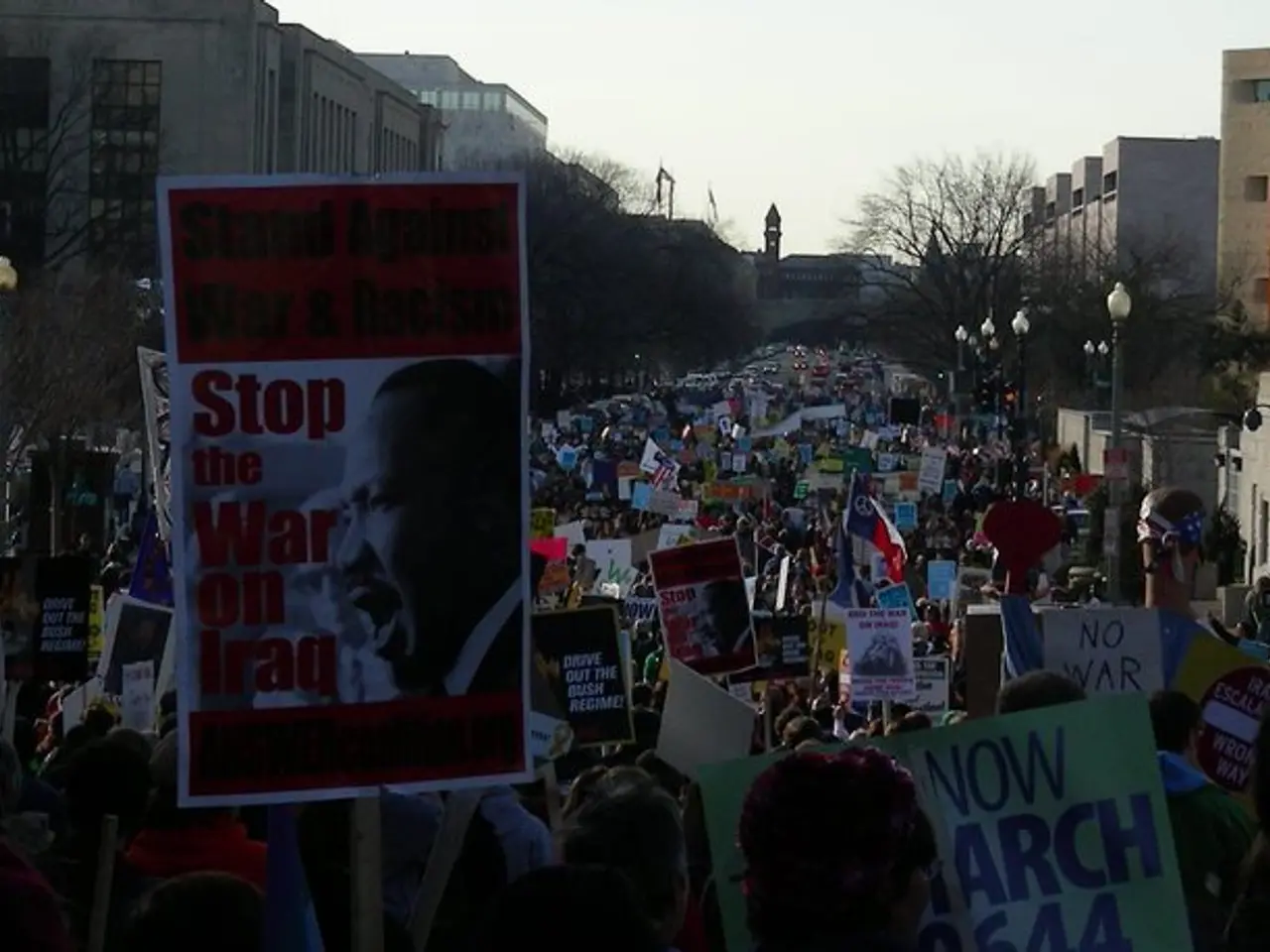Power display by the Georgian government authorities
In the heart of Georgia, political tensions have been running high in recent months. The Georgian government, led by the pro-Russian Georgian Dream party under billionaire Bidzina Ivanishvili, has been prioritizing avoiding war with Russia and seeking solutions for conflicts in Abkhazia and South Ossetia. This approach, attributed mainly to political rival Mikheil Saakashvili, has been met with mixed reactions from the public.
On July 7, Giorgi Gabunia, host of the opposition-aligned TV channel Rustavi 2, addressed Russian President Vladimir Putin in Russian during a Sunday show. This move was met with swift condemnation from the Georgian government, who viewed it as a provocation and a war against the country. As a result, the takeover of ownership by Kibar Chalwaschi, considered close to the government, became legally binding and was implemented soon after.
This decision was met with a lawsuit from Rustavi 2, but the European Court of Human Rights published a judgment in the case on July 18, 2019, finding no violation of the independence and impartiality of the judges in Tbilisi. Opposition politician and former defense minister Irakli Okruaschwili claimed that Rustavi 2 belonged to him on the same day.
Meanwhile, the Georgian Dream party was facing pressure from a civil movement called "It's Shameful", who showed Ivanishvili the "red card" in September and announced various nationwide measures to inform the population about the government's actions until the parliamentary elections in 2020. The movement demanded the resignation of Giorgi Gacharia, who was unanimously elected as prime minister by the Georgian Dream on September 8, following Mamuka Bakhtadze's resignation on Facebook on September 2.
The protesters were not pleased with Gacharia's appointment and demanded that he take responsibility for the violent actions of the police at the beginning of the protests and resign. However, their demands were ignored by the ruling party. This decision has further fueled the already tense political climate in Georgia.
Sociologist Diana Bogishvili, a research associate at ZOiS and a doctoral candidate at the Berlin Graduate School of Social Sciences of the Humboldt University of Berlin, has been studying the public opinion in Georgia. According to her research, 60 percent of the Georgian population is dissatisfied with the current government, and 68 percent believe that the government used excessive force against the protesters on June 20.
The incident with Gabunia was also discussed in the Russian State Duma, and representatives agreed that a response was necessary. However, Vladimir Putin opposed the decision to impose new economic sanctions against Georgia. The Russian President showed remarkable leniency towards Gabunia, stating that opening a case against him would be an "honor he does not deserve".
These events highlight the complex political landscape in Georgia, where the balance between internal stability and external pressures from Russia continues to impact public opinion, especially in conflict regions. The ongoing tensions and the government's decisions regarding Rustavi 2 and the appointment of Gacharia have been met with criticism from various quarters, further adding to the political unrest in the country.
Read also:
- ICE directed to enhance detention conditions following NYC immigrants' allegations of maltreatment
- Israeli finance minister issues warnings about potential annexation of West Bank territories
- United States faces rebuttal from South Africa over allegedly deceitful human rights report and assertions of land expropriation
- Accident at Rodalben Results in Injuries; Geoskop Area near Kusel Affected After Stormy Weather








